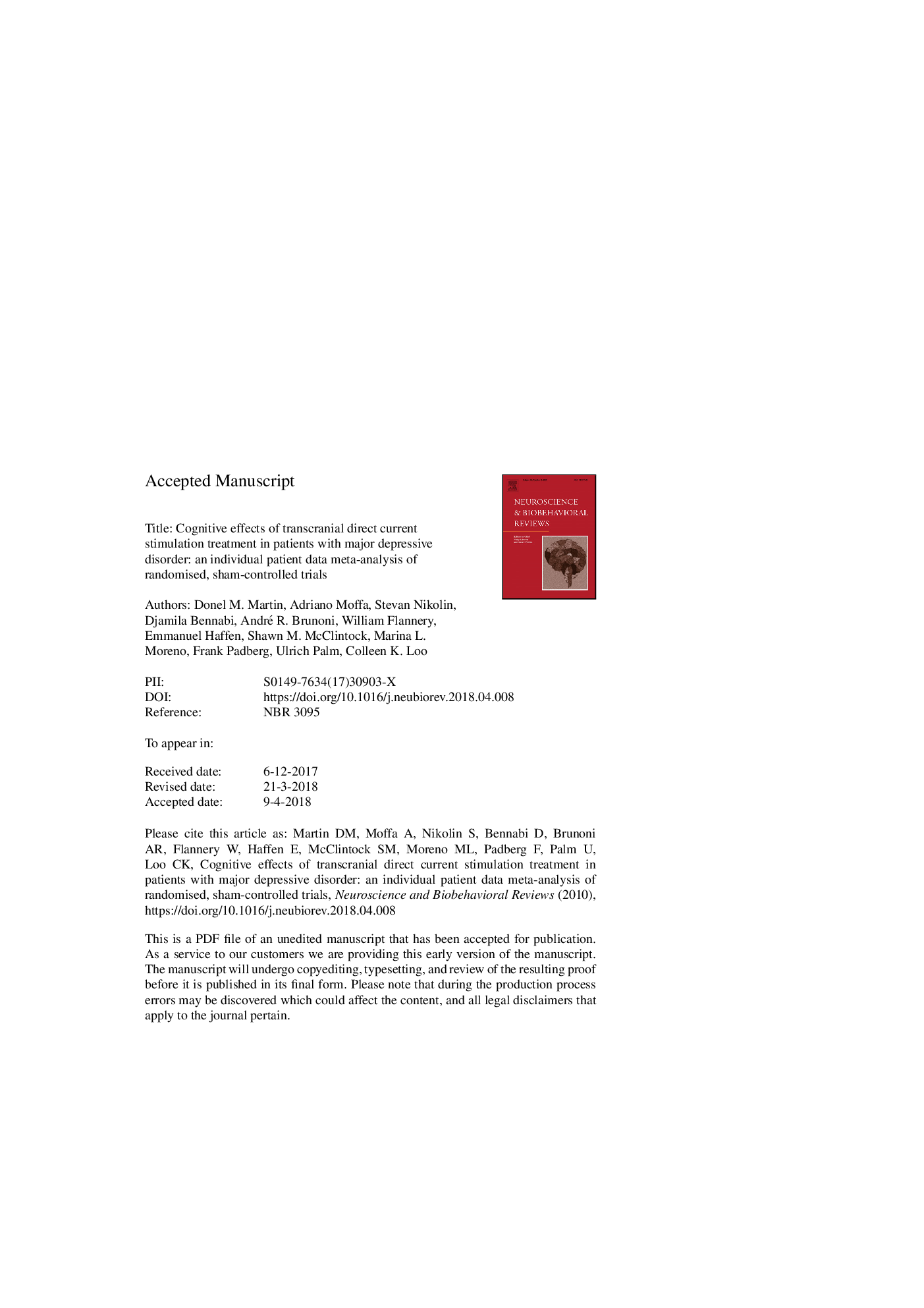| Article ID | Journal | Published Year | Pages | File Type |
|---|---|---|---|---|
| 7301763 | Neuroscience & Biobehavioral Reviews | 2018 | 30 Pages |
Abstract
Seven randomised, sham-controlled trials (nâ¯=â¯478 participants, 260 in active and 218 in sham) of tDCS for major depression were included. Results showed no cognitive enhancement after active tDCS compared to sham for the 12 cognitive outcomes investigated. Active relative to sham tDCS treatment was associated with reduced performance gains on a measure of processing speed (βâ¯=â¯â0.33, 95% CI â0.58; â0.08, pâ¯=â¯0.011). Active tDCS treatment for depression did not show cognitive benefits independent of mood effects. Rather, tDCS treatment relative to sham stimulation for major depression may instead be associated with a reduced practice effect for processing speed.
Related Topics
Life Sciences
Neuroscience
Behavioral Neuroscience
Authors
Donel M. Martin, Adriano Moffa, Stevan Nikolin, Djamila Bennabi, André R. Brunoni, William Flannery, Emmanuel Haffen, Shawn M. McClintock, Marina L. Moreno, Frank Padberg, Ulrich Palm, Colleen K. Loo,
